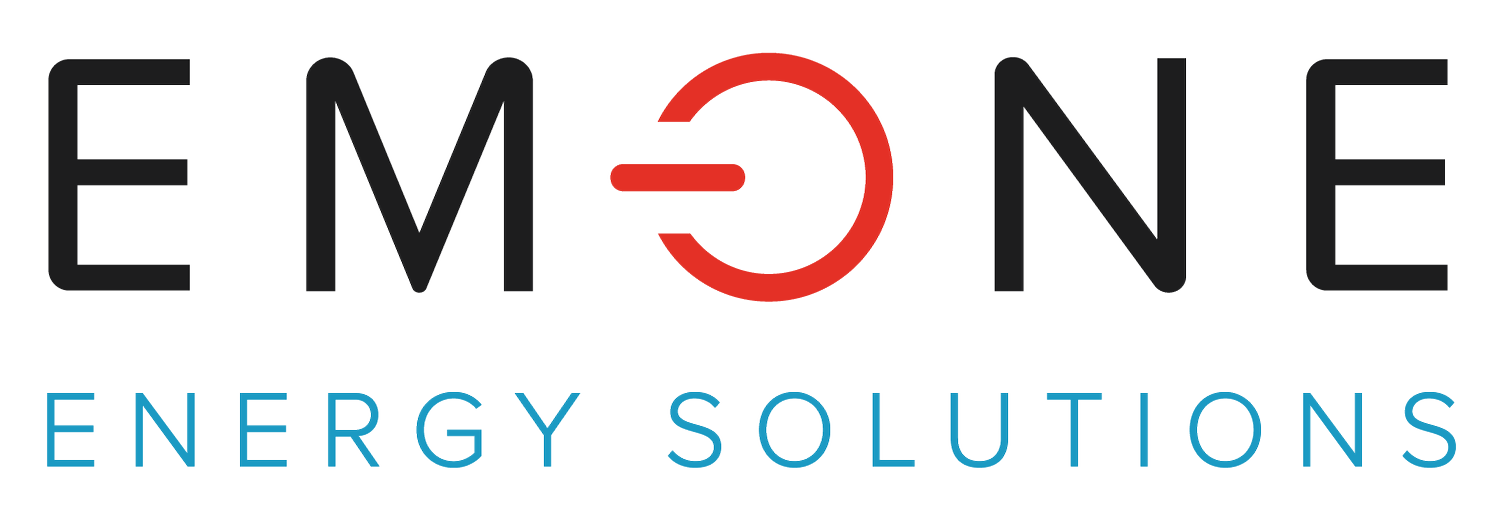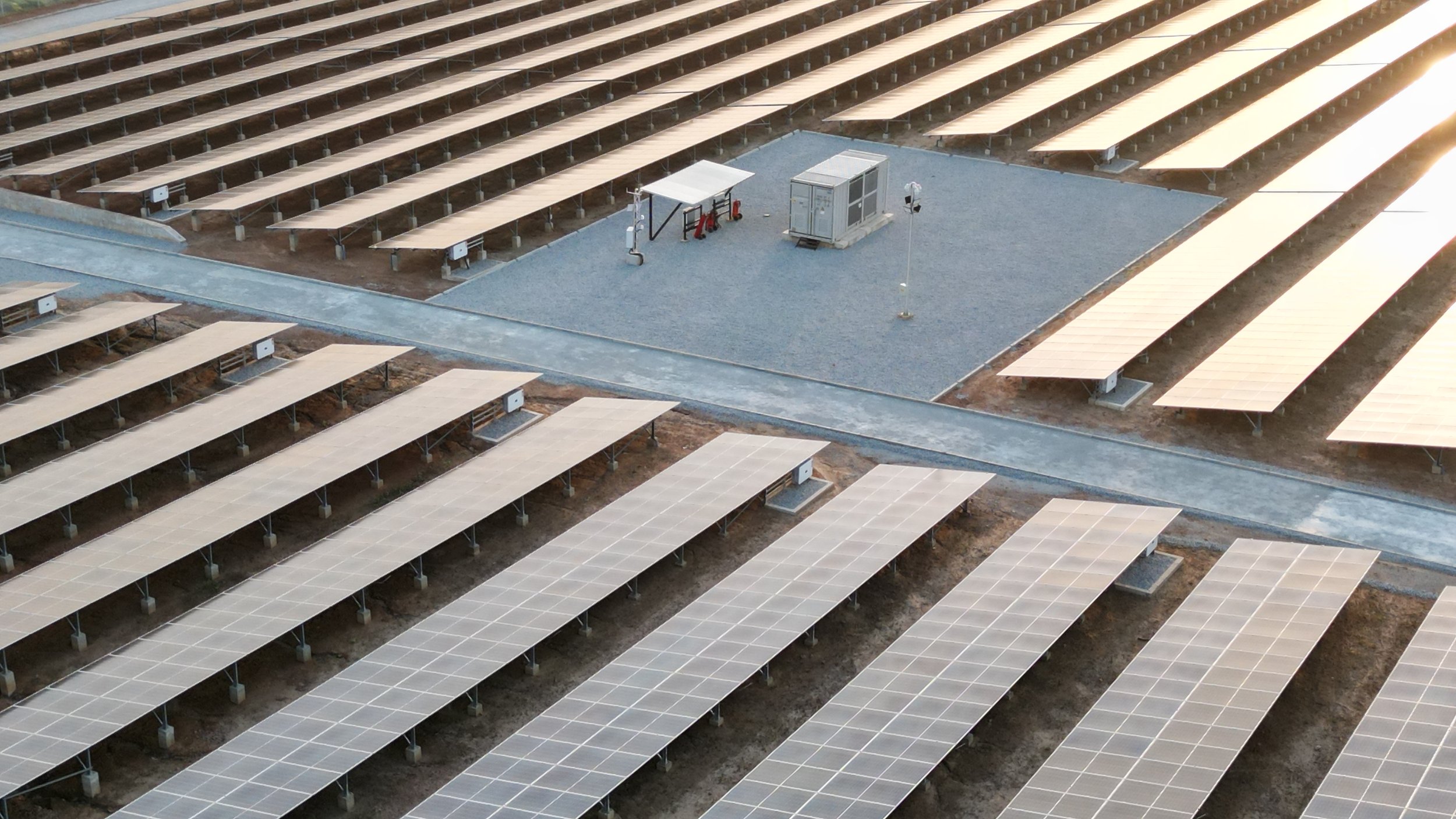3.3 MWp & 2 MWh Solar Microgrid at the University of Abuja
Transforming education through sustainable energy: an energy-as-a-service (EaaS) model for public infrastructure
EM-ONE is excited to unveil our largest solar microgrid project to date: an advanced solar microgrid with a PV of capacity 3.3 MWp and energy storage capacity of 2 MWh.
University of Abuja Solar Microgrid - Photo credit ©EM-ONE
Introduction
The solar microgrid powers the University of Abuja campus and is designed to not only meet the energy needs of the University community, but also serve as a model for future solar projects across Nigeria. The project was funded by the World Bank, through the Energizing Education Phase II, implemented by Nigeria’s Rural Electrification Agency (REA). The service model showcased by this innovative project is a model for long-term sustainability for public buildings across the continent.
Context
The University of Abuja, home to over 35,000 students, has long faced challenges of unreliable power supply, impacting academic and research activities. EM-ONE’s advanced solar microgrid addresses these challenges by providing a stable and reliable power source essential for uninterrupted learning. This project aligns with the University’s vision to promote sustainability and innovation, ultimately inspiring the next generation of leaders.
Key Project Features:
3.3 MWp Solar PV Plant + 2 MWh Energy Storage: Ensures consistent power supply across the campus.
Energy as a Service (EaaS) Model: The system is grid-export capable, which in the future can export excess power to the surrounding community and support the financial viability of the project.
Upgraded Power Distribution Network: Entire campus distribution network upgrade enhances energy efficiency and reliability on campus.
Street Light Upgrade: Installation of 488 streetlights across the campus enhances safety and security throughout the university grounds.
Renewable Energy Training Center: A training center was delivered alongside the energy infrastructure that will serve the campus’ education on renewable energy fundamentals.
Graduate Engineering Program: A flagship program launched by EM-ONE to develop local capacity, training young engineering graduates while delivering this project.
Innovative Energy as a Service model
This project implements an Energy as a Service (EaaS) business model which ensures the solar microgrid is financially sustainable, with the capability to export and sell excess power to the grid or university off-takers within the community. This not only covers the ongoing operation and maintenance costs but also generates additional revenue, making the system self-sustaining in the long term.
University of Abuja Solar Microgrid - Photo credit ©EM-ONE
Impact on Education
With the new solar microgrid, the University of Abuja will benefit from stable, uninterrupted energy, allowing academic and research activities to proceed without interruption. The reduced energy costs will enable reallocation of resources to other critical areas, enhancing overall quality of education. The establishment of the Renewable Energy Training Centre will position the University of Abuja as a leader in renewable energy education and research, fostering innovation for long-term community impact.
Through EM-ONE's year-long Graduate Engineering Program (GEP), 20 engineering graduates have been trained in solar project delivery and equipped with the essential skills for leadership in the renewable energy sector.
Hon. Minister of Power Chief Adebayo Adelabu (center) meeting EM-ONE’s GEP trainees who worked on the project. Photo credit ©REA
Community Benefits
This project reimagines the university as a vibrant community hub, energizing educational facilities and student activities while exporting excess power to surrounding areas. The introduction of e-mobility solutions, including charging points for electric buses, emphasizes the innovative nature of this project and its commitment to integrating sustainability into campus life. By reducing the university’s carbon footprint, we set a precedent for sustainable development for public buildings.
Hon. Minister of Power, Chief Adebayo Adelabu visits the site accompanied by EM-ONE’s Sustainable Energy Director, Adnan Rashid (left). Photo credit ©REA
Project Partners
The World Bank is the primary funder of Energizing Education Phase II (EEP II), a program implemented under the Nigeria Electrification Project. The $105 million EEP II exemplifies the World Bank’s commitment to improving educational infrastructure and energy access in Nigeria, aligning with its’ broader goals of economic development and poverty reduction.
The Rural Electrification Agency (REA) is the implementing agency for EEP II. The program directly addresses the challenge posed by unreliable power in education and healthcare, critical sectors for the country’s socio-economic development.
EM-ONE is a renewable energy service company (RESCO) with over a decade of experience advancing the sustainable energy transition in Africa. Our expertise in engineering and technology has enabled us to successfully design and build over 320 solar microgrids across West Africa, with a total PV capacity of 20 MWp and energy storage capacity of 90 MWh. We are now currently scaling up our impact with plans to deploy 350 MWp of renewable energy capacity across the region, in partnership with REA and the World Bank.










